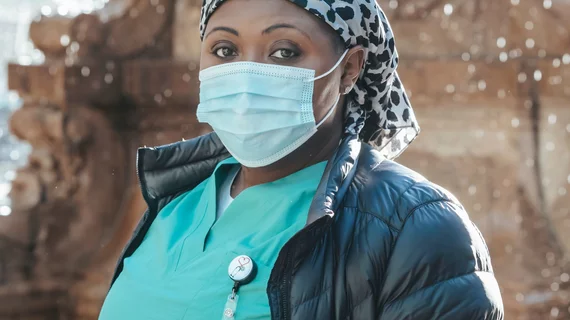$103M earmarked for healthcare workforce burnout
The Department of Health and Human Services is directing $103 million of funds from the American Rescue Plan to address burnout in healthcare workers.
The funding, which will be dispersed over a three-year period, aims to also promote mental health among the healthcare workforce, which has been pushed to the brink over the last 18 months while caring for COVID-19 patients. More than 606,000 deaths have been reported in the U.S. from the virus, while there have been nearly 34 million COVID cases in the last 30 days, according to July 19 data from the Centers for Disease Control and Prevention.
Healthcare workers have been on the frontlines of the fight against COVID, sometimes without proper personal protective equipment to protect themselves from contracting the virus. Now, more than a year after COVID-19 landed in the U.S., the healthcare workforce is in desperate need of wellness.
“The Biden-Harris Administration is committed to ensuring our frontline healthcare workers have access to the services they need to limit and prevent burnout, fatigue and stress during the COVID-19 pandemic and beyond,” HHS Secretary Xavier Becerra said in a statement. “It is essential that we provide behavioral health resources for our healthcare providers—from paraprofessionals to public safety officers—so that they can continue to deliver quality care to our most vulnerable communities.”
The funding will help healthcare organizations “establish a culture of wellness” internally, according to HHS, with training efforts to help those at the beginning of their healthcare careers. The funding comes just in time, as roughly 2.7 million health care workers plan to leave the industry after the pandemic. The pandemic has been especially hard on the mental health of the healthcare workforce, worsening mental health conditions. High patient volumes, long work hours and workplace demands were all heightened since the start of the pandemic.
Additionally, rural communities and communities of color have seen the worst of the pandemic, with a disproportionate impact.
“This funding will help advance HRSA’s mission of developing a health care workforce capable of meeting the critical needs of underserved populations,” said Acting HRSA Administrator Diana Espinosa. “These programs will help to combat occupational stress and depression among our health care workers as they continue their heroic work to defeat the pandemic.”
With the announcement of the funding, HHS opened applications to a number of programs, including:
- Promoting Resilience and Mental Health Among Health Professional Workforce—10 awards totaling approximately $29 million over three years to healthcare organizations to support members of their workforce, such as establishing, enhancing or expanding evidence-informed programs or protocols to adopt, promote and implement an organizational culture of wellness that includes resilience and mental health among their employees.
- Health and Public Safety Workforce Resiliency Training Program—30 awards totaling approximately $68 million over three years for educational institutions and other appropriate state, local, Tribal, public or private nonprofit entities training those early in their health careers. This includes providing evidence-informed planning, development and training in health profession activities in order to reduce burnout and suicide while promoting resiliency among the workforce.
- Health and Public Safety Workforce Resiliency Technical Assistance Center—One award of $6 million over three years to provide tailored training and technical assistance to HRSA's workforce resiliency programs.

